Hãy nhập câu hỏi của bạn vào đây, nếu là tài khoản VIP, bạn sẽ được ưu tiên trả lời.

a: \(=\dfrac{x^3+2x+2x-2-x^2-x-1}{\left(x-1\right)\left(x^2+x+1\right)}\)
\(=\dfrac{x^3-x^2+3x-3}{\left(x-1\right)\left(x^2+x+1\right)}=\dfrac{x^2+3}{x^2+x+1}\)
b: \(=\dfrac{x^2-2x-3+x^2+2x-3+2x-2x^2}{\left(x-3\right)\left(x+3\right)}\)
\(=\dfrac{2x-6}{\left(x-3\right)\left(x+3\right)}=\dfrac{2}{x+3}\)
c: \(=\dfrac{6-7+x}{3\left(x-1\right)}=\dfrac{x-1}{3\left(x-1\right)}=\dfrac{1}{3}\)
d: \(=\dfrac{x^3+2x+2x-2-x^2-x-1}{\left(x-1\right)\left(x^2+x+1\right)}=\dfrac{x^3-x^2+3x-3}{\left(x-1\right)\left(x^2+x+1\right)}=\dfrac{x^2+3}{x^2+x+1}\)

Bài 1 :
a, \(A=x\left(x-6\right)+10\)
=x^2 - 6x + 10
=x^2 - 2.3x+9+1
=(x-3)^2 +1 >0 Với mọi x dương

a,=(x\(^2\)-6x+9)+10-9
=(x-3)\(^2\)+1
Mà(x-3)\(^2\)\(\ge\)0
nên (x-3)\(^2\)+1>0
b,= -(-4x+x\(^2\))-5
= -(4-4x+x\(^2\))-5+4
= -(2-x)\(^2\)-1
Mà -(2-x)\(^2\)\(\le\)0
nên -(2-x)\(^2\)-1< 0
Võ Hoàng Tiên: Cảm ơn pạn nhiều lắm =)) nek :3 Hí Hí :) Thankssssss


\(a,=\dfrac{x^3+2x}{\left(x-1\right)\left(x^2+x+1\right)}+\dfrac{2}{x^2+x+1}-\dfrac{1}{x-1}=\dfrac{x^3+2x+2x-2-\left(x^2+x+1\right)}{\left(x-1\right)\left(x^2+x+1\right)}=\dfrac{x^3+3x-3}{\left(x-1\right)\left(x^2+x+1\right)}=\dfrac{x^3+3}{\left(x^2+x+1\right)}\)
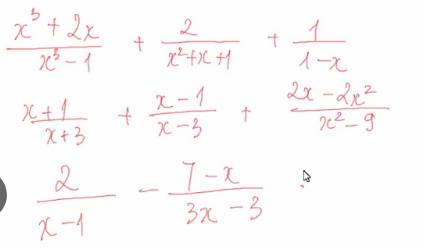
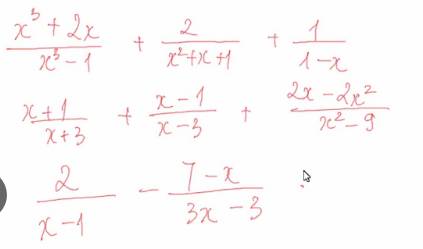
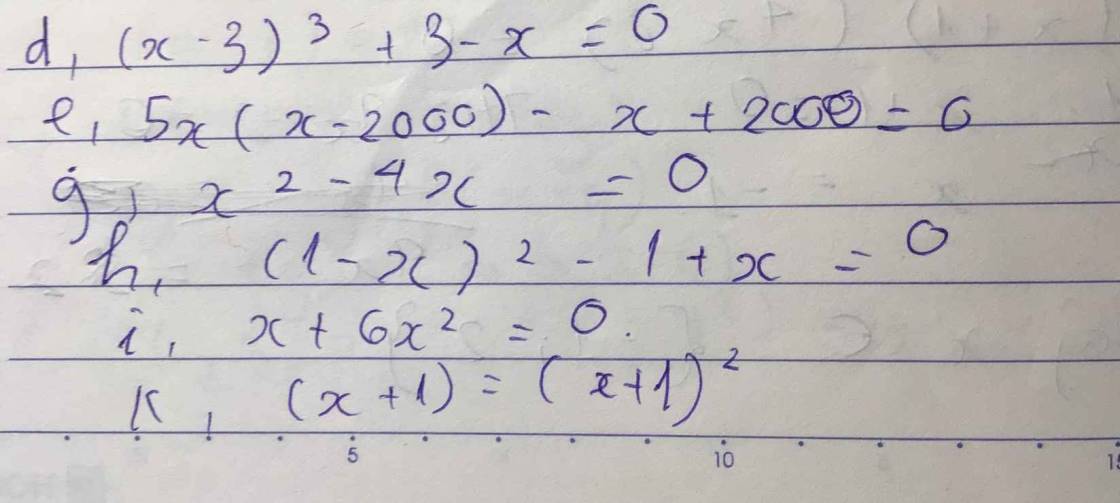
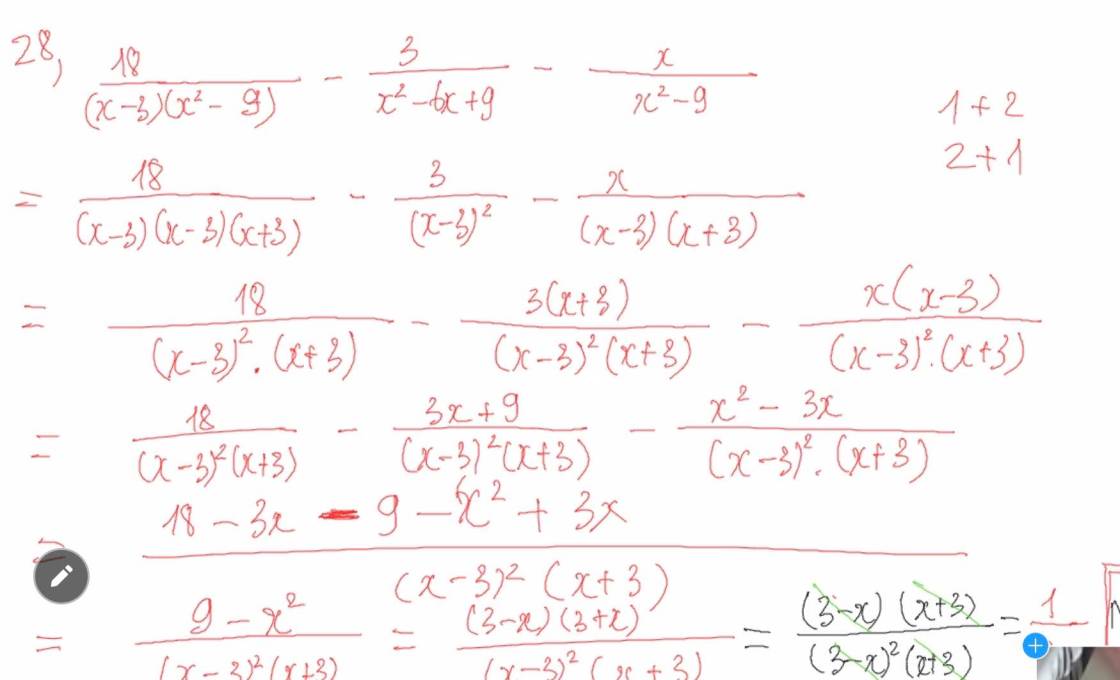
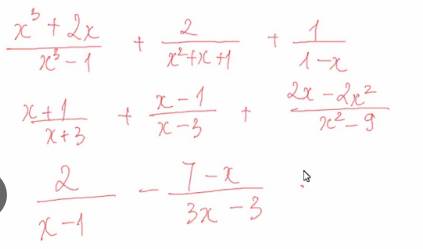
Câu 2:
Nguyên nhân:
-Sâu xa: Do mâu thuẫn của các nước đế quốc về vấn đề thuộc địa
-Trực tiếp: thái tử Áo-Hung bị ám sát(28/6/1914)
Hậu quả:
Khoảng 1,5 tỷ người bị cuốn vào vòng khói lửa, 10 triệu người chết, trên 20 triệu người bị thương, nền kinh tế Châu Âu bị kiệt quệ.